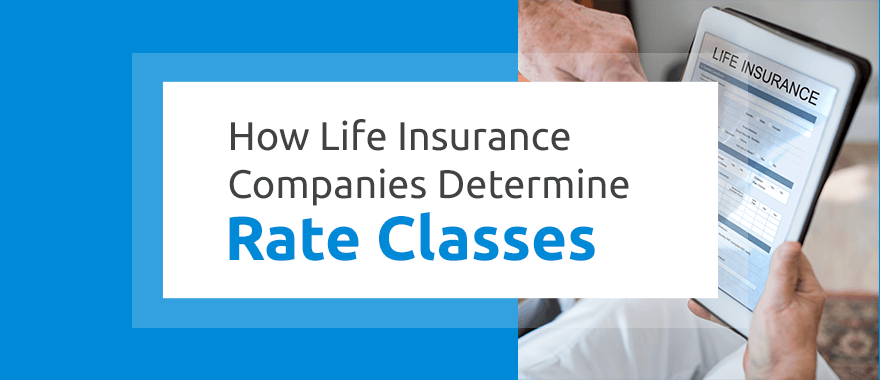Life insurance is important. It helps protect your loved ones. But how do companies decide the cost? Let’s find out.
Factors That Affect Life Insurance Rates
Life insurance companies look at many things. These things help them decide your rate. Here are the main factors:
- Age
- Gender
- Health
- Lifestyle
- Occupation
- Policy Type
Age
Age is very important. Younger people usually pay less. Older people pay more. This is because younger people are healthier. They also have a longer life ahead.
Gender
Gender also matters. Women often pay less than men. This is because women usually live longer. So, they are less risky to insure.
Health
Health is a big factor. Companies will check your health. They look at your medical history. They may ask for a medical exam. Healthy people pay less. People with health issues pay more.
Lifestyle
Lifestyle choices affect rates too. Do you smoke? Do you drink alcohol? These habits can make your rate higher. Healthy habits can lower your rate.
Occupation
Your job can affect your rate. Some jobs are riskier than others. For example, a firefighter might pay more than an office worker. This is because their job is more dangerous.
Policy Type
The type of policy you choose also matters. There are different types of life insurance. Term life insurance is usually cheaper. Whole life insurance costs more. This is because it offers more benefits.
How Companies Collect Information
Life insurance companies need information. They use different ways to collect it. Here are some methods:
- Application Form
- Medical Exam
- Medical Records
- Credit Reports
Application Form
You will fill out an application form. This form asks many questions. It covers your age, gender, health, and lifestyle. It helps the company understand you better.
Medical Exam
Some companies ask for a medical exam. A doctor will check your health. They will measure your height and weight. They may take blood and urine samples. This helps the company know your health condition.
Medical Records
Companies may check your medical records. They look at your past health issues. They also check any treatments you had. This helps them assess your health risk.
Credit Reports
Some companies check your credit report. They look at your financial habits. This helps them see if you are responsible. Good credit can lower your rate. Bad credit might increase it.
:max_bytes(150000):strip_icc()/lifeinsurance-v32-8e01fd19793a49699e47973cfdf98f3d.png)
Credit: www.investopedia.com
Underwriting Process
After collecting information, companies start the underwriting process. This process helps them decide your rate. Here is how it works:
- Gather Information
- Assess Risk
- Set Premium
Gather Information
First, they gather all the information. This includes your application form, medical exam, and records. They also look at your credit report.
Assess Risk
Next, they assess your risk. They use the information they gathered. They compare it to their guidelines. This helps them understand how risky it is to insure you.
Set Premium
Finally, they set your premium. This is the amount you will pay. They use the risk assessment to decide the cost. High risk means a higher premium. Low risk means a lower premium.
Ways to Lower Your Life Insurance Rates
You can take steps to lower your life insurance rates. Here are some tips:
- Stay Healthy
- Quit Smoking
- Limit Alcohol
- Maintain a Healthy Weight
- Choose the Right Policy
Stay Healthy
Keep your health in check. Regular exercise and a balanced diet help. This can lower your rate.
Quit Smoking
Smoking increases your rate. Quitting can help lower it. Many companies offer lower rates to non-smokers.
Limit Alcohol
Drinking too much alcohol can raise your rate. Limit your alcohol intake. This can help reduce your premium.
Maintain A Healthy Weight
Being overweight can increase your rate. Maintain a healthy weight. This can help lower your premium.
Choose The Right Policy
Pick a policy that suits your needs. Term life insurance is cheaper. Whole life insurance offers more benefits. Choose wisely to get the best rate.

Credit: www.insurancecentermo.com
Frequently Asked Questions
What Factors Affect Life Insurance Rates?
Age, health, lifestyle, and coverage amount are major factors. Insurers assess risk based on these criteria.
How Does Age Impact Life Insurance Cost?
Younger applicants typically pay lower premiums. Life expectancy decreases with age, increasing the insurer’s risk.
Why Do Health Conditions Matter?
Health issues can increase premiums. Insurers view poor health as a higher risk for claims.
Does Smoking Affect Life Insurance Rates?
Yes, smokers usually pay more. Smoking significantly increases health risks, leading to higher premiums.
Conclusion
Life insurance rates depend on many factors. Companies look at your age, gender, health, and lifestyle. They also consider your occupation and policy type. By understanding these factors, you can get a better rate. Stay healthy and make wise choices. This will help you save on your life insurance.











